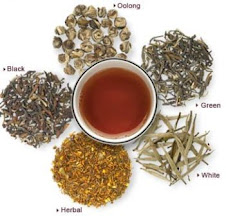Green Tea: Fat Fighter?
Black tea, oolong tea, and green tea come from the same Camellia sinensis plant. But unlike the other two varieties, green tea leaves are not fermented before steaming and drying.
Most teas contain large amounts of polyphenols, which are plant-based substances that have been shown to have antioxidant, anticancer, and antiviral properties.
However, green tea is particularly rich in a type of polyphenols called catechins. These substances have also been shown to have anti-inflammatory and anticancer properties, but recent research in animals show that catechins may also affect body fat accumulation and cholesterol levels.
In this study, researchers looked at the effects of catechins on body fat reduction and weight loss in a group of 35 Japanese men. The men had similar weights based on their BMI(body mass index, an indicator of body fat) and waist sizes.
The men were divided into two groups. For three months, the first group drank a bottle of oolong tea fortified with green tea extract containing 690 milligrams of catechins, and the other group drank a bottle of oolong tea with 22 milligrams of catechins.
During this time, the men ate identical breakfasts and dinners and were instructed to control their calorie and fat intake at all times so that overall total diets were similar.
After three months, the study showed that the men who drank the green tea extract lost more weight (5.3 pounds vs. 2.9 pounds) and experienced a significantly greater decrease in BMI, waist size, and total body fat.
In addition, LDL "bad" cholesterol went down in the men who drank the green tea extract.
The catechin content varies by amount of green tea used and steeping time. But general recommendations, based on previous studies on the benefits of green tea, are at least 4 cups a day. Green tea extract supplements are also available.
Researchers say the results indicate that catechins in green tea not only help burn calories and lower LDL cholesterol but may also be able to mildly reduce body fat.
"These results suggest that catechins contribute to the prevention of and improvement in various lifestyle-related diseases, particularly obesity," write researcher Tomonori Nagao of Health Care Products Research Laboratories in Tokyo, and colleagues.
ReferenceBy Jennifer Warner
WebMD Medical News
Reviewed By Michael Smith, MD
on Wednesday, January 26, 2005
http://my.webmd.com/content/article/99/
105398.htm



Tidak ada komentar:
Posting Komentar